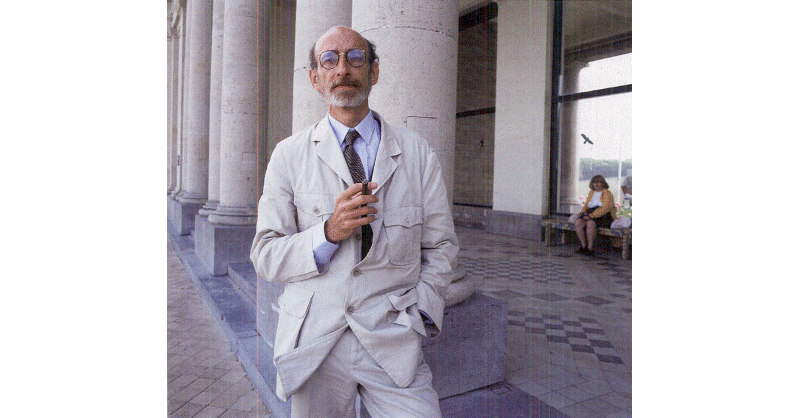Eric de Kuyper (b. 1942) has worked and continues to work in many different areas of (Belgian) cinema. He worked as a producer for BRT [Belgian Radio and Television], where he hosted, for example, De Andere Film. He is a filmmaker and worked as a co-screenwriter for several of Chantal Akerman’s films. He was a film theorist and essayist and deputy director of Eye, the Dutch film museum, and he has written numerous articles and essays on film, opera, dance and media. Between 1982 and 1992, together with Emile Poppe, he was the editor of the Dutch-language film magazine Versus. Over the course of three nights, Sabzian and Eric de Kuyper will highlight his rich career as part of the Belgian-cinema-dedicated series Seuls.
On this second film night at Cinema RITCS, we take a closer look at De Kuypers activities as a film critic. He started his film-critical activities in the 1960s at the monthly magazine Streven. In the following decades, he would publish texts in many Dutch-language magazines (Kunst & Cultuur, Skrien and Film en Televisie), but also in French magazines such as Cinémathèque and Trafic. Between 1982 and 1992, together with Emile Poppe, he self-published the film magazine Versus.
In 1966, De Kuyper wrote a long essay for Streven on the films of Josef von Sternberg, a Austrian filmmaker who would build a prolific career in the United States from the 1930s onwards. The collaboration between Von Sternberg and actress Marlene Dietrich was one of the most enduring in Hollywood cinema. They successfully made the transition from the silent to the sound era and created a series of films together that expressed an unbridled ecstasy in the filmmaking process itself. Characterised by striking lighting design, meticulous art design and dynamic camerawork, these sensual films redefined the cinema of the time, the ambiguous characters turning Dietrich-the-actor into an icon. Shanghai Express (1932) is their third American collaboration. De Kuyper characterises Von Sternberg as a “paradoxical filmmaker”, who seemed to submit to each and every Hollywood cliché while managing to unmask it at the same time. De Kuyper will introduce the film, and the film will be followed by a discussion on De Kuyper’s work as a film critic. In the coming weeks, Sabzian will republish a number of striking texts from his remarkable oeuvre, with a new commentary by De Kuyper.

Eric de Kuyper (b. 1942, Belgium) graduated from the Brussels film school RITCS in 1966. Between 1965 and 1977 he worked as a producer for the BRT, where he hosted, for example, De Andere Film. His filmography includes Casta Diva (1982), Naughty Boys (1984), A Strange Love Affair (1985), Pink Ulysses (1990) – all screened at the Venice Film Festival – and most recently My Life as an Actor (2015). De Kuyper was also a co-screenwriter for several of Chantal Akerman’s films.
In addition, de Kuyper works as a film theorist and essayist. In the 1970s, he studied in Paris, with the philosopher/semiotician Roland Barthes and the linguist/semiotician Algirdas Greimas, among others. He founded the department of film and performance arts at the Catholic University of Nijmegen. His book Filmische hartstochten (1984) is a study of love in Hollywood cinema.
The autobiographical Aan zee (1988) was his literary debut, followed by a quick succession of books based on his youth in Brussels and numerous stays with his family in Ostend.
Until 1992, de Kuyper was deputy director of Eye, the Dutch film museum. He wrote numerous articles and essays on film, opera, dance and media (in Dutch as well as French magazines such as Cinémathèque and Trafic). Between 1982 and 1992, together with Emile Poppe, he was the editor of film magazine Versus.
For the Operadagen Rotterdam he made silent films accompany live performances of works by Schumann (Genoveva, 2010), Debussy (L’enfant prodigue, 2010) and Berlioz (Les nuits d’eté, 2011). For CINEMATEK in Brussels, he set up projects on early silent films (De verbeelding in context) and worked with De Nederlandse Opera and conductor Hartmut Haenchen on the accompaniment of Die Stahlwerke bei Poldihütte. He also put together a programme for Bozar on Eric Satie, John Cage, James Ensor and early silent films.


